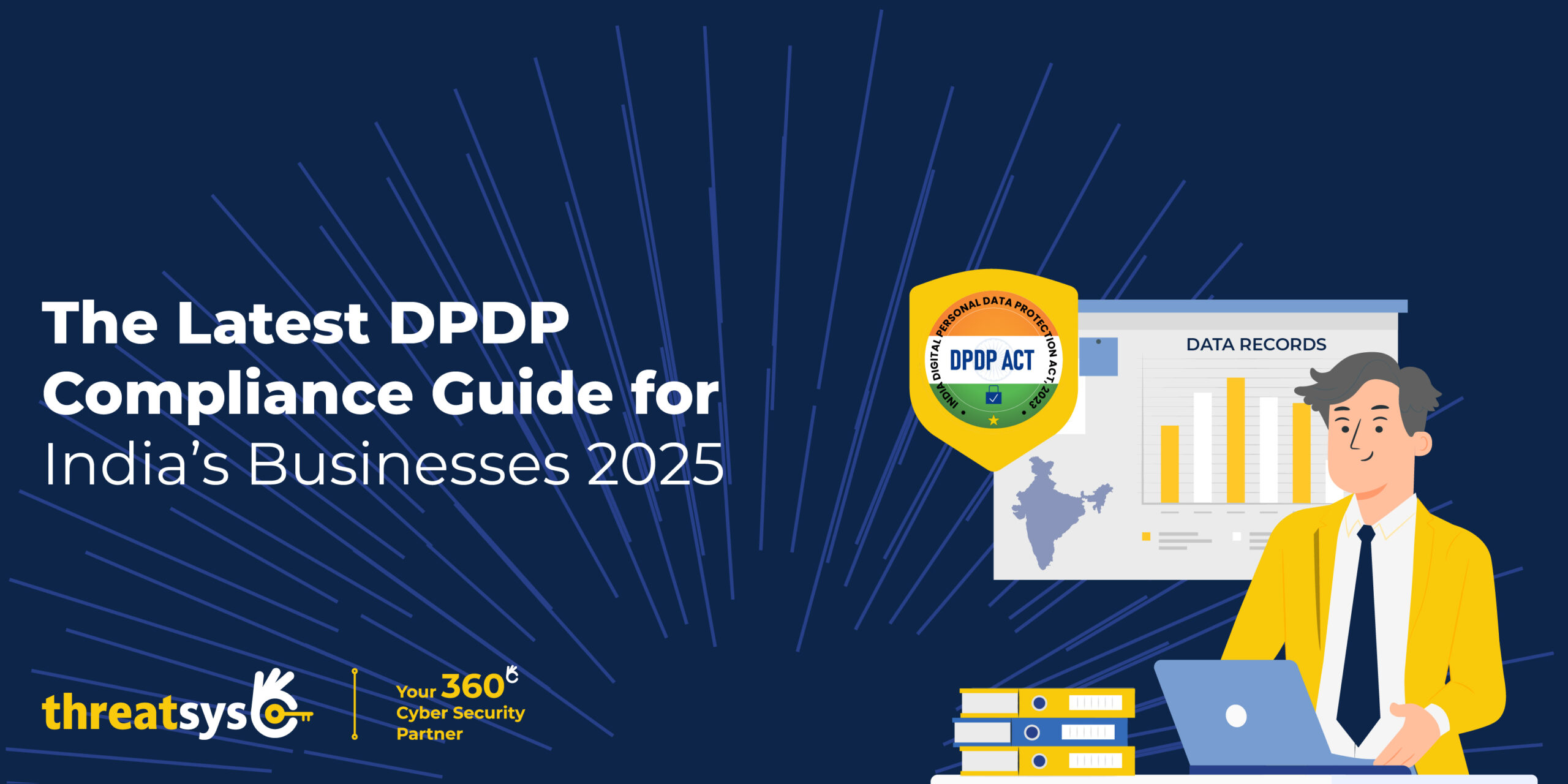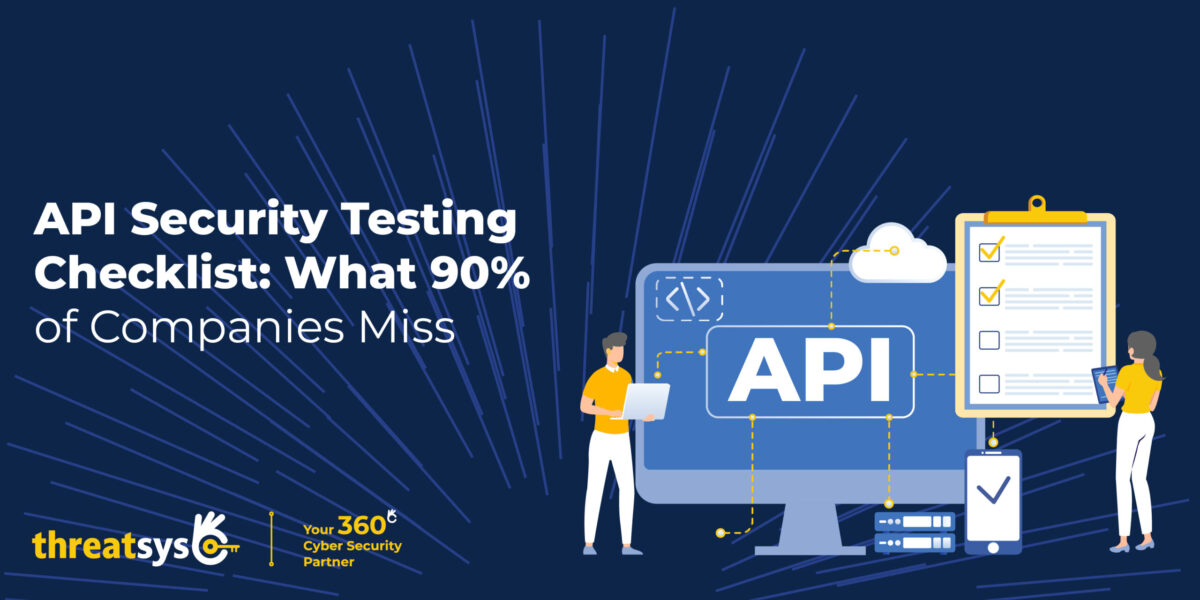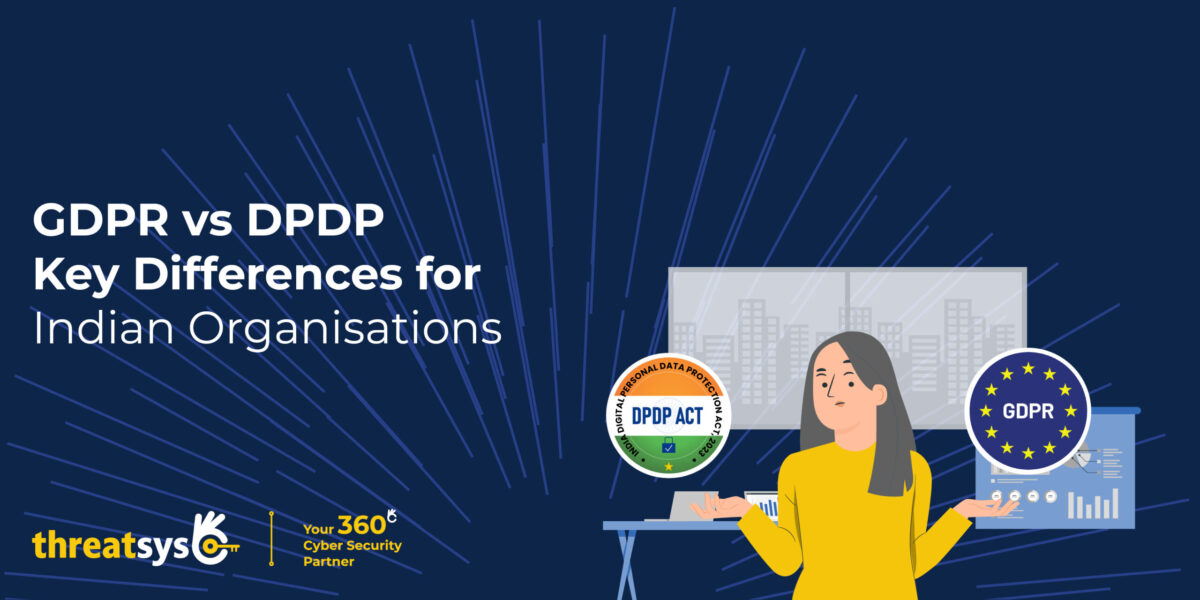India’s Digital Personal Data Protection (DPDP) Rules 2025 have officially arrived, setting a new foundation for how organisations handle personal data. With penalties reaching up to ₹250 crore for breaches and strict obligations around consent, governance, and data security, DPDP is no longer an optional initiative , it is a critical requirement for every business operating in India. Whether a company is a startup, a cloud-based platform, an SME, or a large enterprise, the responsibility to protect personal data now has clear legal boundaries and timelines.
Why DPDP Demands Immediate Attention?
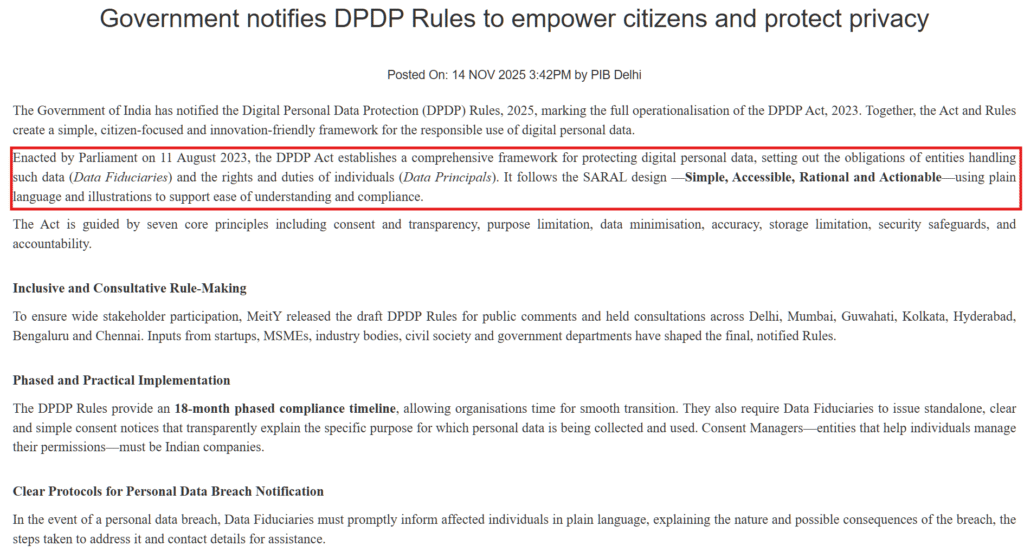
The Government has activated the new DPDP Rules, and the 18-month compliance timer is already ticking.
This shift is especially critical because:
- A new Data Protection Board is now active and empowered
- RBI may issue show-cause notices if digital lending practices misalign
- Penalties can cripple even large enterprises
- Security, consent, and governance standards are now enforceable
- Every organisation processing personal data in India is covered
DPDP isn’t just about avoiding fines , it’s about building responsible, resilient, and transparent data ecosystems.
DPDP Timeline and What It Means
Phase 1 — Effective Now (13 Nov 2025)
- Activation of the Data Protection Board
- Foundational definitions and governance structure come into force
Phase 2 — November 2026
- Registration and operational guidelines for Consent Managers
- Standardisation of consent dashboards and user-facing mechanisms
Phase 3 — May 2027 (Full Enforcement Begins)
- Notice and consent rules become mandatory
- Security and protection measures must be fully implemented
- Breach reporting timelines come into effect
- Data deletion, withdrawal, and retention obligations start
- Rules for processing children’s data become enforceable
- Cross-border data transfer requirements start applying
- Audits and DPIAs become compulsory for SDFs
Where Organisations Should Begin ?
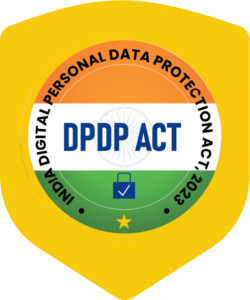
While the compliance window seems long, building a DPDP-ready framework takes time. The first step for any organisation is to review its existing data handling practices and identify gaps. Most businesses will need new or updated processes around consent, retention, access control, and breach response. Strengthening technical safeguards becomes equally important, as DPDP requires companies to demonstrate that appropriate security measures are in place.
A few areas that every organisation needs to prioritise include:
- Conducting a DPDP gap assessment
- Updating privacy notices and consent flows
- Strengthening cybersecurity controls such as VAPT, monitoring, and incident response
- Reviewing third-party and vendor contracts for data handling compliance
- Preparing a structured breach notification workflow
These steps form the foundation upon which full DPDP compliance can be built.
How Threatsys Helps Businesses Stay DPDP-Ready
Meeting the new DPDP requirements can be challenging, but Threatsys simplifies the journey with a comprehensive and tailored approach.
![]()
- Full Compliance Assessment
We evaluate your current data ecosystem, identify compliance gaps, and map them to DPDP 2025 requirements. - Smart Consent Management Solutions
Threatsys helps you implement transparent consent notices, user preference centres, and withdrawal workflows. - Advanced Security Implementation
From encryption and access control to data masking and monitoring, we strengthen your end-to-end security posture. - Rapid Breach Detection & Reporting Setup
Our systems ensure quick incident detection, seamless reporting, and reduced downtime during breaches. - Children’s Data Protection Compliance
We help you build reliable age-verification and parental-consent workflows to meet stricter rules for minors. - Policy, Notice & Documentation Support
Get updated privacy policies, retention policies, consent notices, and SOPs aligned with the new rules. - Employee Training & Awareness
We train teams across departments to ensure secure data handling and compliance readiness. - Ongoing Monitoring & Advisory
Threatsys offers continuous audits, risk assessments, and regulatory updates to keep you compliant all year.
Conclusion: A Safer Digital Tomorrow with Threatsys
The DPDP Rules 2025 represent a major milestone in India’s journey toward stronger digital privacy. For businesses, these updates demand more responsibility, greater transparency, and a renewed focus on customer trust. By adopting proactive measures and integrating privacy into their core operations, organisations can turn compliance into a competitive advantage.
With Threatsys as your compliance partner, navigating these regulatory changes becomes simpler, faster, and more efficient — ensuring your business stays secure, compliant, and future-ready.

Stay secure, stay aware with Threatsys.

